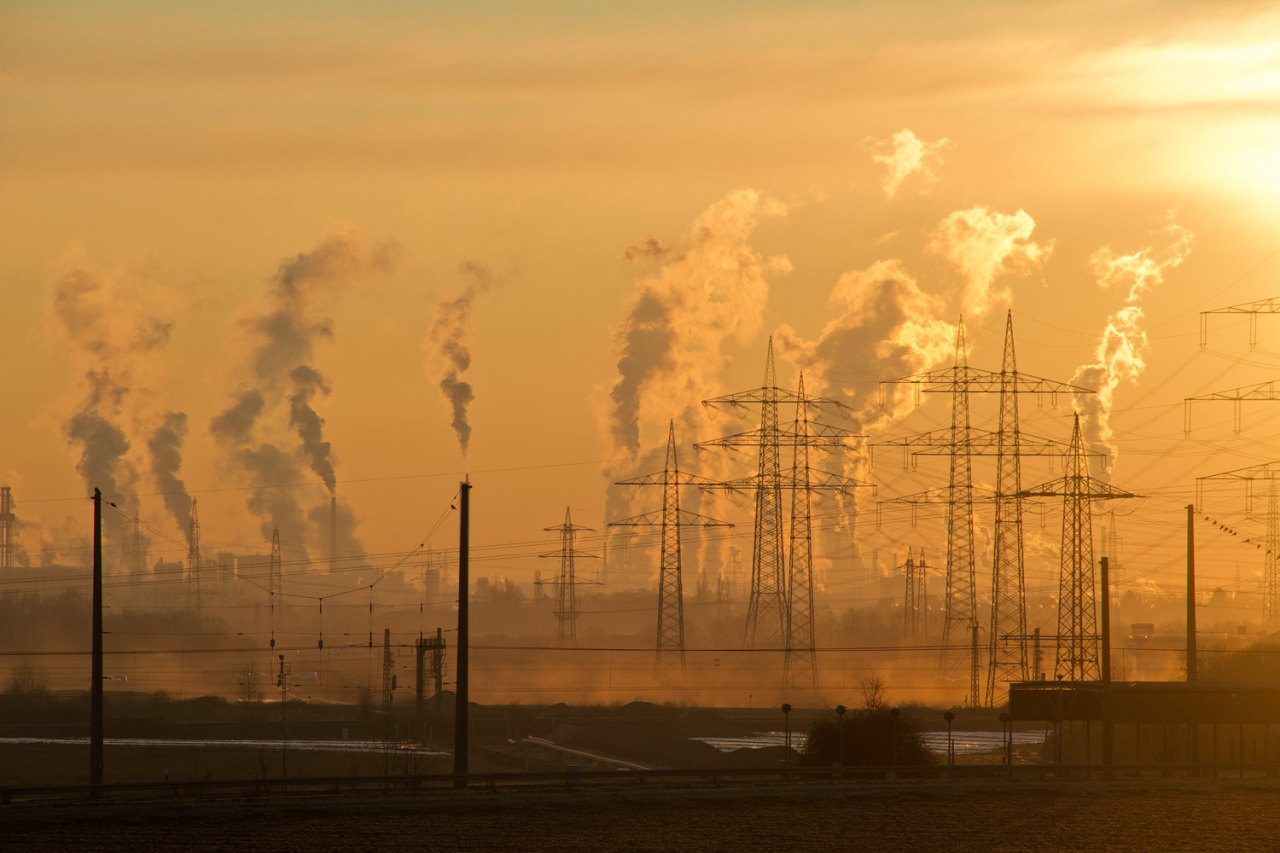South Korea's annual greenhouse emissions hit record high in 2017
By YonhapPublished : Oct. 7, 2019 - 21:06
South Korea's annual greenhouse emission reached a record high of 709.1 million tons in 2017, a government environment agency said Monday.
The Greenhouse Gas General Information Center, under the Ministry of Environment, disclosed the emissions results after getting confirmation by a government committee in charge of controlling greenhouse gas.
The output marks growth of 2.4 percent from 2016 when the corresponding figure came to 692.6 tons, according to the center.
It is also the first annual emission number to top the 700 million ton threshold after the figure peaked at 696.9 tons in 2013.
The annual growth is mainly attributable to increased gas emissions from electricity and steel production as well as growth in fluorocarbons, which are potent greenhouse gases.
In the category of electricity and heat production, a major factor for greenhouse gas emission, coal was responsible for on-year emission growth of 12.6 million tons in 2017 while gas was responsible for an increase of 1.1 million tons. Petroleum accounted for a decrease of 5.2 tons in greenhouse gas emission on-year, according to the data.
The Greenhouse Gas General Information Center, under the Ministry of Environment, disclosed the emissions results after getting confirmation by a government committee in charge of controlling greenhouse gas.
The output marks growth of 2.4 percent from 2016 when the corresponding figure came to 692.6 tons, according to the center.
It is also the first annual emission number to top the 700 million ton threshold after the figure peaked at 696.9 tons in 2013.
The annual growth is mainly attributable to increased gas emissions from electricity and steel production as well as growth in fluorocarbons, which are potent greenhouse gases.
In the category of electricity and heat production, a major factor for greenhouse gas emission, coal was responsible for on-year emission growth of 12.6 million tons in 2017 while gas was responsible for an increase of 1.1 million tons. Petroleum accounted for a decrease of 5.2 tons in greenhouse gas emission on-year, according to the data.

The major increase of greenhouse gas emissions from the use of coal came as the number of new coal power plants that went into operation surpassed the number of old coal power plants that were decommissioned in the one year period, the government agency said.
The increases seen in steel production and fluorocarbons were all attributable to growth in exports of locally-produced steel, semiconductors and display products, the findings showed.
Energy production represented 86.8 percent out of the total 2017 greenhouse gas emissions, followed by industrial manufacturing at 7.9 percent and agriculture at 2.9 percent.
The 2017 figure, meanwhile, put the volume of greenhouse gas emissions per person in South Korea at 13.8 tons, up 2.1 percent from 2016. (Yonhap)







![[From the Scene] Monks, Buddhists hail return of remains of Buddhas](http://res.heraldm.com/phpwas/restmb_idxmake.php?idx=644&simg=/content/image/2024/04/19/20240419050617_0.jpg&u=20240419175937)








![[From the Scene] Monks, Buddhists hail return of remains of Buddhas](http://res.heraldm.com/phpwas/restmb_idxmake.php?idx=652&simg=/content/image/2024/04/19/20240419050617_0.jpg&u=20240419175937)

![[KH Explains] Hyundai's full hybrid edge to pay off amid slow transition to pure EVs](http://res.heraldm.com/phpwas/restmb_idxmake.php?idx=652&simg=/content/image/2024/04/18/20240418050645_0.jpg&u=20240419100350)

![[Today’s K-pop] Illit drops debut single remix](http://res.heraldm.com/phpwas/restmb_idxmake.php?idx=642&simg=/content/image/2024/04/19/20240419050612_0.jpg&u=)